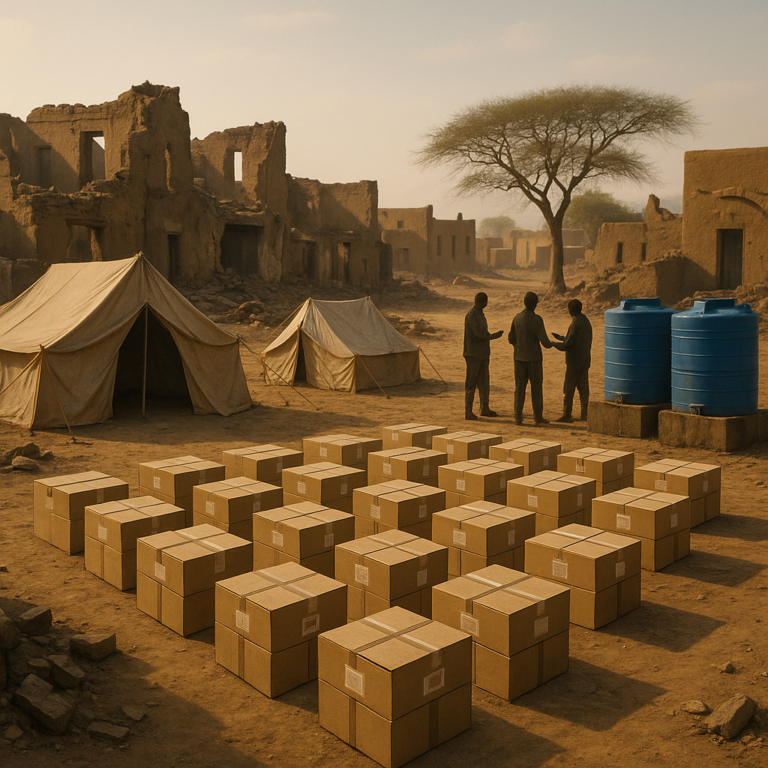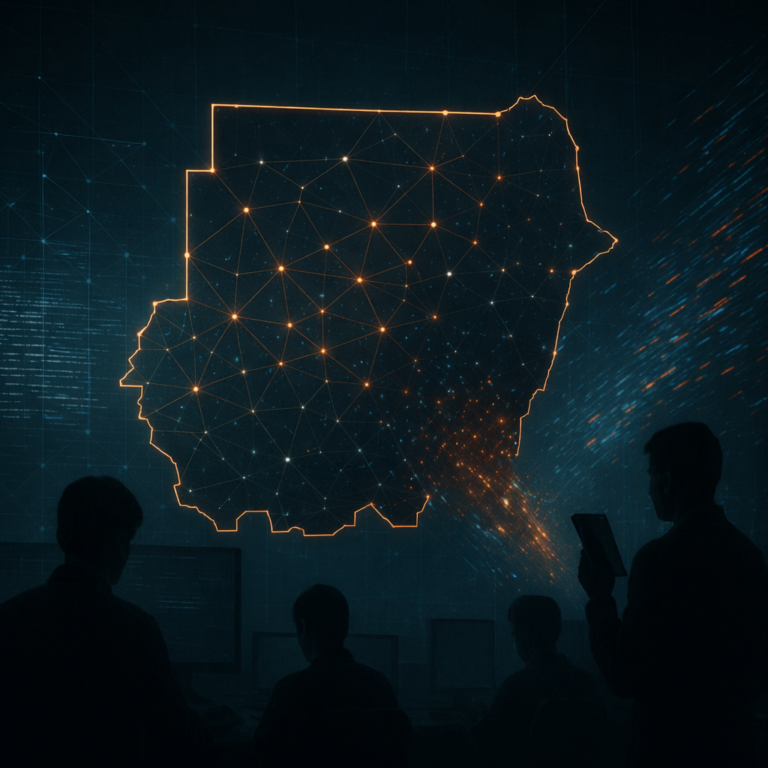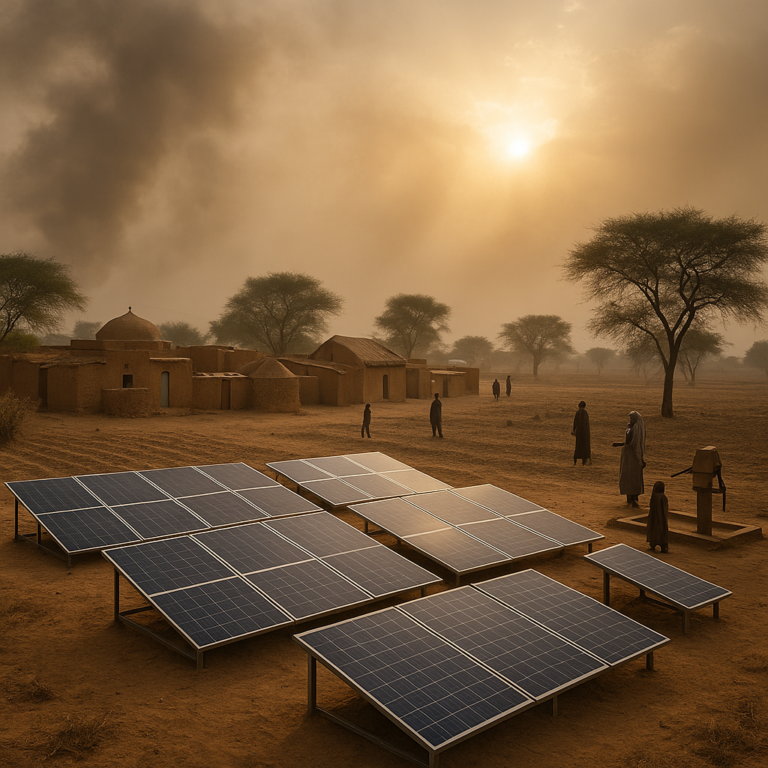Author: Raduan Abdellah M. Ali
Writing Date: 26 September 2024
Affiliation: Published as part of the 2024 AMEL Sudan Democracy Lifeline Fellowship
Disclaimer: The views expressed in this publication are those of the author(s) and do not necessarily reflect the official policy or position of AMEL
Description of AMEL Fellowship: The AMEL Sudan Democracy Lifeline Fellowship is an online program dedicated to empowering emerging voices to influence global discussions on democracy, peace, and development in Sudan. Through a series of interactive workshops, mentorship, and evidence-based research projects, fellows gain critical skills in analysis, policy formulation, and advocacy.
In late 2018, political space in Sudan came across a huge shift when a broad nonviolent action movement predominantly led by young people, women and civil society groups calling for civil democratic rule, successfully ousted three decades of dictatorship. This movement was made up of neighborhood Resistance Committees (RCs), and the Sudanese Professional Associations (SPAs) which draws on Sudan’s once-powerful trade union movements.
Although RCs, and SPAs led the revolutionary masses, their political capabilities in negotiation, participation and working as an incubator to safeguard the new transitional civilian government was not forthcoming. The question of democratic state building entails multifaceted elements, crystallization of nonviolence tactics for change, political experience in participating at peace negotiation ending up with a programmatic transitional government led by technocrats, and a peaceful revolutionary, is a genuine path for democratic state building.
On the other hand, RSs and SPAs are not unified blocks; some influential figures were members of political parties and bound to political lines and stands, which has affected them in pressuring and advocacy in the issues relating to meaningful participation.
Another pitfall was that the forces for freedom and change FFC government initially brought together the forces pushing for peaceful change with technocrats. The collection of incompatible ideologies and interests within the FFC, and its misjudged compromises with the military, has reduced the rates and quality of participation and ultimately led to the failure of the transition to democracy. None of the FFC’s different elements was able to find a convincing program for returning the military to barracks and broadening representation within the state to include women and marginalized regions. In addition, political parties at FFC are center-based, and have not many supporters in marginalized regions to shape more pressure for participation.
In Oct 2020, the Juba Peace Agreement (JPA) was negotiated and signed by the transitional government, armed groups and other groups representing the civil opposition and a balanced government was created. The JPA was divided into geographic tracks to ensure broader participation and respect for the specificity of regions. But it is not inclusive: it has brought deep-seated discontent and division in the society. Nazir Tirik protested JPA, and called for a separate negotiating platform for East Sudan. It’s important to recognize that JPA was a top-down negotiation in a narrow framework between military politicians, who shared a rapport with each other, and did not trust civilians or democracy.
The gentlemen’s agreement focused on power-sharing, and crystallization of new political equations for the benefit of the military branch, without deep discussion on the roots and proximate causes of the conflict. Since the agreement was signed, insurgents kept a direct ally with military commanders.
In South Darfur, I have worked in a research – Study The costs of peace, I have realized misleading representation, JPA made militia leaders into representatives of civilian communities. For example, the representative of IDPs in the huge Kalma camp was linked to a fraction of an armed movement. militia connections were needed to get representation at JPA, to advance the political agenda at the negotiation table, which itself represents undemocratic moves to undermine broader perspectives.
Women, IDPs and youth – the majority of the population – had almost no real representation. A few women leaders from cities represented after lots of pressure, militias excluded civilians from negotiation and execution of the agreement, most of JPA positions in Darfur are dominated by militia leaders. It’s clear that Darfuri insurgencies have no popular support, therefore, they used JPA to offset their isolation from Darfurian constituencies, this exclusion contributed to the absence of peace and to new expressions of inter-communal violence and displacement. It’s true to say that JPA did not gain momentum and no insurgency leader visited IDP camps in South Darfur. Many people in Darfur believe that JPA was less valuable than the ink they wrote with it.
Another spiky issue that hinder the path to democracy is SAF leaders used the anti-democratic characteristics of the JPA to maintain their own power and privileges, coupled with SAF ties to NCP leaders at Kobar Jail, who were dictating decisions aiming to exclude leftists and liberals and regain power, in turn FFC weaknesses helped SAF. In tandem with this, the formation of pluralistic national parliament was obstructed, and the national constitutional convention did not convene, transition processes were sluggish and the period spent at political maneuvers and tactics within FFC parties, and FFC with military commanders, and end up in 2021 civilian government was overthrown by military coup, prime minister was detained FFC representatives were chased from the power and the recent development SAF and RSF.




